If Deepavali spells card-game get-togethers for you, it’s time to ditch the boring old school decks. Gifting companies in the country have been acing their card game with experimental designs inspired by art, nostalgia, history and even sustainability.
Take Phool, for instance. Known for its temple-flower-recycled incense sticks and fragrances, the brand dropped its collector’s edition Deepavali card game. “While the market is ripe with many variants of cards, what we found lacking was a version that is Indian in nature,” shares the brand’s lead graphic designer Shubhakshi Seth.
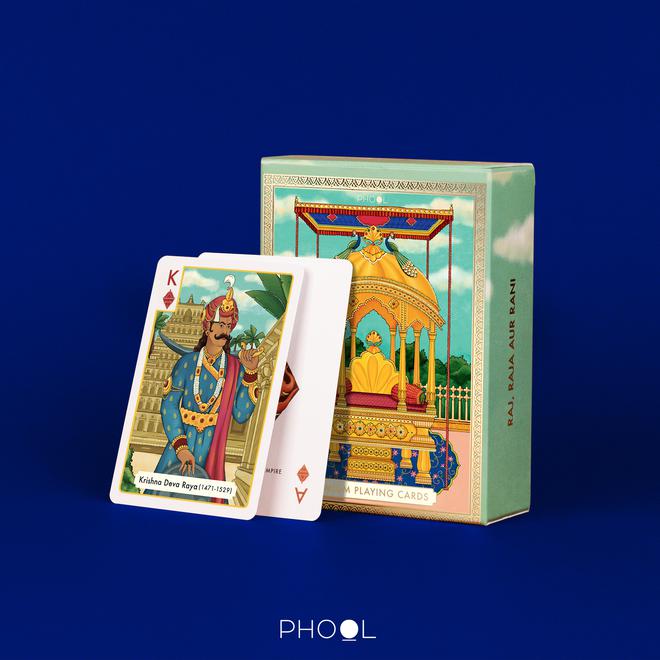
In its deck of cards, Phool designates four kingdoms from 15th and 16th Century — Vijayanagara Empire, Mewar Dynasty, Maratha Dynasty and Mughal Dynasty — to four suits. The suits have been given a specially designed sigil. These sigils are an amalgamation of the art, architecture and the popular folklore pertaining to the illustrated characters. Like the sigil for Mewar Dynasty has a distinguished symbol comprising Maharana Pratap’s beloved horse, Chetak, two swords, as he was known to carry two of those wherever he went, and elements pertaining to Gorilla Warfare that was popularised by him in the country.
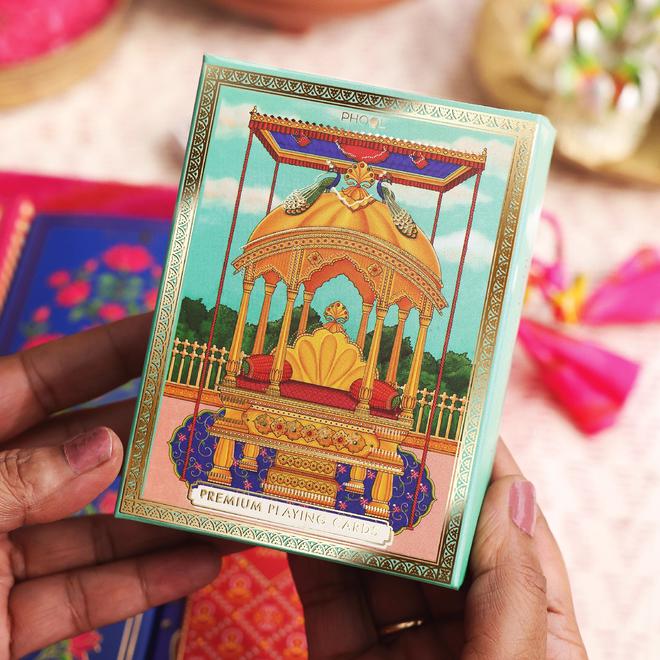
All the aces in the deck are illustrated with these elaborate symbols related to the different kingdoms. “The personalities in the deck are historical figures, such as Krishna Deva Raya (king), Tirumala Devi (queen) and Tenali Rama (jack) in the diamond suit. There’s an honorary mention of Rani Lakshimibai too. The artwork is inspired by vintage Indian paintings of gods, goddesses and scenes from mythology and folktales — from the lithographs of Ravi Varma Press to the dreamy muted tones of the Kalyan Magazine illustrations,” Shubhakshi says.
Going further back in history, Hindu mythology has an interesting role in making card games somewhat ritualistic during Deepavali. A quick search on the internet will lead you to the story of gambling gods — Shiva and Parvati. It is believed that they rolled the dice on the night of the festival of lights.
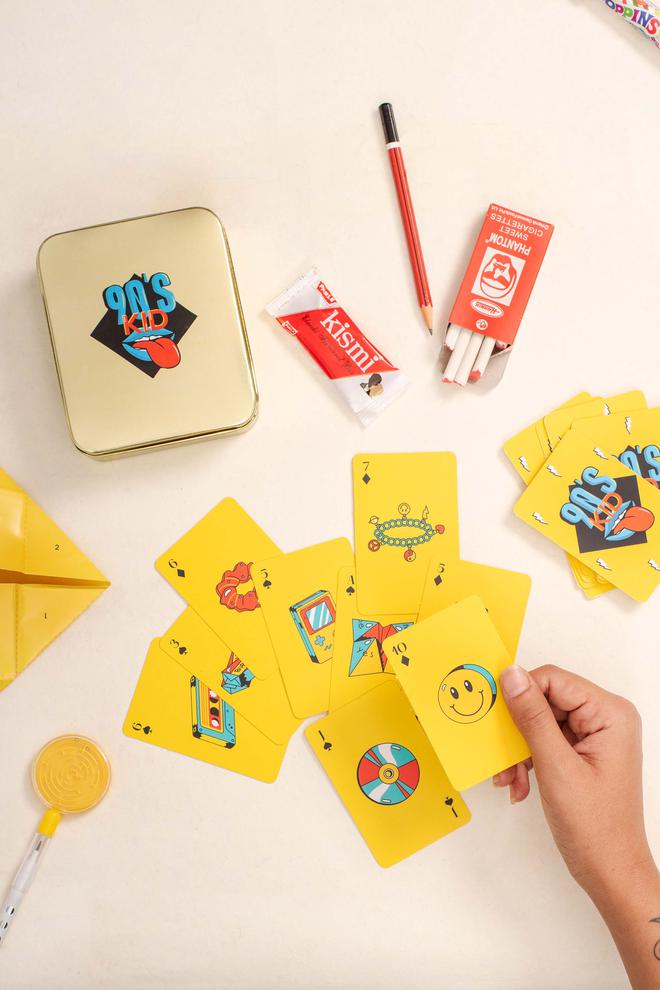
Cut to the 90s, Confetti Gifts summarises the pop culture of the decade with undulated illustrations of cassettes, friendship bands, CD, walkman and more, on playing cards. “We wanted to create a deck of cards that would bring back childhood memories. Our in-house design team curated the design, inspired by the bright and colourful celebrations of the festival,” says the brand’s owner Saumya Kabra. The cards are made with 300 gsm thick paper with matte lamination.
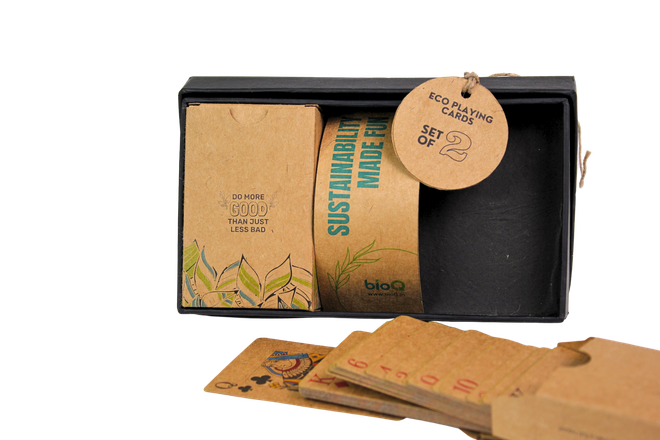
However, if you are an environmentalist going for eco-friendly Deepavali, try getting your hands on recycled Kraft paper cards by BioQ, priced ₹199 on the brand’s website. The brand’s owner Saurabh Gupta says, “Our motivation to revamp the playing card designs stemmed from a desire to embody bioQ’s ethos. We chose earthy tones to resonate with nature, and every card was crafted with designs echoing sentiments of nature and sustainability.”
Discussing the designing process of the cards, Saurabh says that BioQ uses eco-certified ink. “We decided to utilise the back of the playing card box by incorporating a word-search game filled with terms associated with sustainability; it is a gentle nudge towards eco-conscious thinking,” he says.
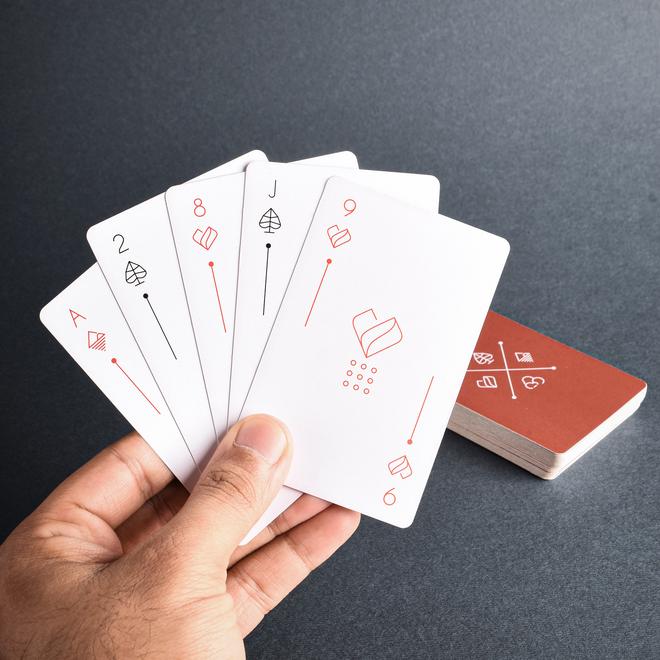
Elements of nature and trekking assume prime space in the design language of cards by Bombay Trooper. The company plans to switch to recycled plastic for their next batchg of cards to serve its goal of using planet-friendly alternatives.
“On one of our travels we saw a group of people playing cards at the end of their trekking day and I realised these cards are either made in the same old floral patterns or one of those dull casino-style geometric patterns. That’s when the idea of implementing our design language came,” says the brand’s owner Jugal Mistry. He adds, “My brother Rahul and I came up with the idea of using elements of nature to represent the suits of the playing cards. So, we designed trees (Spades), mountains (Diamonds), clouds (Clubs) and leaves (Hearts).” Pegged at ₹675, the cards come in a set of two with a travel case.
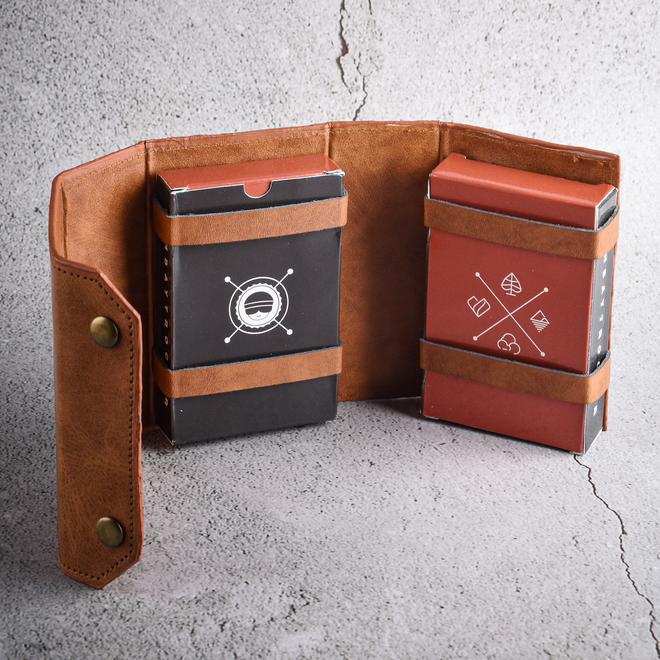
There’s something for artsy folks too. Chumbak’s playing cards take inspiration from Madhubani paintings. The brand’s representative Rhea Budhiraja says, “We’re inspired by India and its rich art and cultural heritage. We like taking inspiration from these art forms while putting our own spin on it (without appropriating it…). Our recent Madhubani edit is inspired by the art form and is a playful irreverent take on playing cards; complete with arm-pit scratching ranis, broke kings, and scheming wazirs.” The cards are priced at ₹395 and available on the brand’s website.
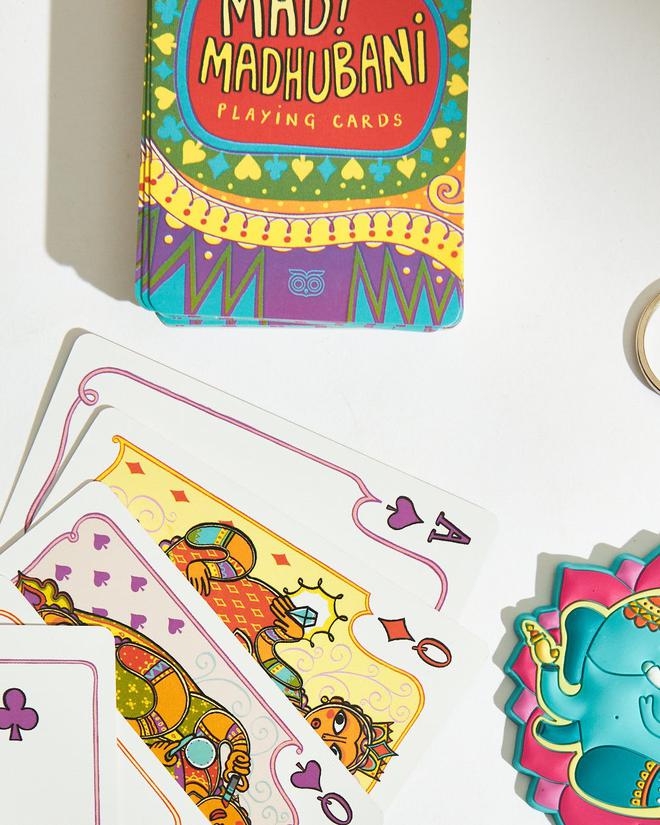
Now that we have toured the various creative spaces that the humble deck of cards has ventured into, it’s time for you to host a card party at your abode while keeping the stakes in check.
Just remember to play your cards close to your chest!







